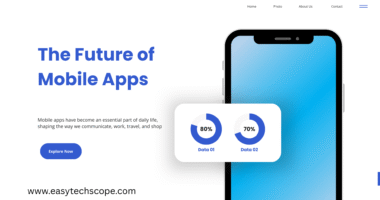Quantum computing is emerging as one of the most disruptive technologies of our time. Unlike classical computers, which rely on binary bits (0s and 1s), quantum systems use qubits, which can exist in multiple states simultaneously. This ability allows quantum computers to process vast amounts of data at speeds unimaginable with current machines. But beyond raw power, quantum computing represents a shift in how we approach technology and business challenges.
Quantum Computing: Redefining Technology
In the technology landscape, quantum computing will enable solutions that traditional systems cannot achieve. Its power lies in handling complex, multi-variable problems where millions of possibilities must be calculated instantly.
Some key technology impacts include:
-
Cybersecurity – Quantum computing poses a dual challenge. On one hand, it could break today’s encryption methods in minutes. On the other, it enables quantum-safe encryption that may lead to the most secure systems ever built.
-
Artificial Intelligence (AI) – Quantum-enhanced machine learning could process massive datasets more efficiently, creating smarter, adaptive AI models that outperform classical algorithms.
-
Optimization Problems – From traffic flow in smart cities to resource distribution in global systems, quantum technology will handle challenges where classical computing falls short.
This isn’t just about speed—it’s about unlocking entirely new possibilities.
The Business Value of Quantum Power
For businesses, the arrival of quantum computing brings opportunities to innovate, cut costs, and create entirely new services. Industries that thrive on complex calculations will benefit the most.
Finance and Investment
Banks and investment firms are already experimenting with quantum computing for portfolio optimization, fraud detection, and faster market simulations. These capabilities will lead to smarter financial strategies and greater resilience against economic uncertainty.
Logistics and Supply Chains
Global companies often face challenges in routing, scheduling, and resource allocation. Quantum algorithms can evaluate countless variables at once, ensuring faster deliveries, reduced fuel consumption, and leaner supply chains.
Manufacturing and Materials
Quantum computing will accelerate the discovery of advanced materials for construction, electronics, and renewable energy. This means stronger, lighter, and more efficient products, creating new market opportunities and lowering production costs.
By leveraging quantum power, businesses will gain competitive advantages that go beyond incremental improvements.
Preparing for the Quantum Future
Despite its potential, quantum technology faces challenges. The systems are still expensive, delicate, and require highly specialized knowledge. Additionally, cybersecurity risks are increasing as quantum threatens existing encryption standards.
To prepare, businesses should:
-
Partner with quantum research leaders to explore use cases.
-
Invest in workforce training to build quantum-ready teams.
-
Adopt quantum-safe encryption practices to protect sensitive data.
Those who start adapting early will be better positioned to take advantage of the technology once it becomes mainstream.
Conclusion: Quantum as the Next Game-Changer
Quantum computing is not just another upgrade in processing power—it is a complete reimagining of how problems can be solved. For technology, it promises breakthroughs in security, AI, and optimization. For business, it means new levels of efficiency, smarter decision-making, and innovation at scale.
The power of quantum lies in its ability to reshape entire industries. Companies and innovators who embrace this transformation today will lead tomorrow’s digital economy.








